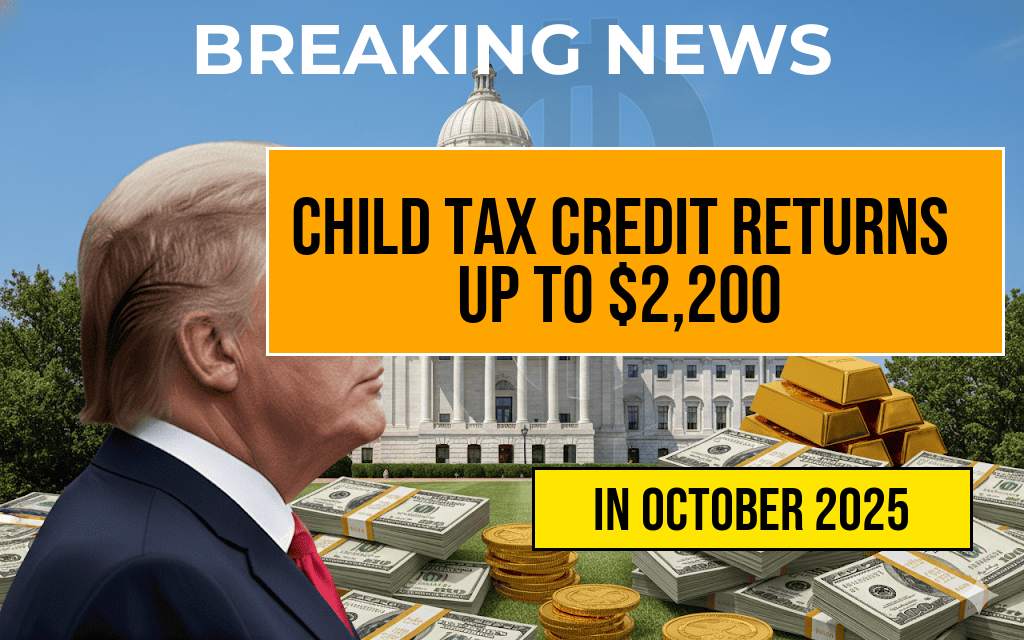Recent changes to the U.S. tax code are poised to significantly benefit the nation’s wealthiest individuals, with projections indicating an average **net income increase of $5,000** for top-tier earners. These reforms, approved by Congress late last year, aim to simplify certain tax provisions while providing targeted relief to high-income households. Financial analysts suggest that the adjustments could further widen the existing income disparity, prompting discussions about economic equity and the impact on federal revenue. Experts from institutions such as the Internal Revenue Service and economic think tanks note that the changes primarily favor those with substantial assets and investment income. As the new tax policies take effect, many of the wealthiest Americans are expected to see their after-tax income grow, with some estimates indicating a cumulative additional $20 billion in annual income for this demographic.
Details of the Tax Reforms and Their Impact
Key Provisions Favoring Wealthy Taxpayers
- Reduction in Capital Gains Taxes: The reforms lowered the capital gains tax rate for high-income brackets from 20% to 18.5% for certain earners, making investment profits more lucrative.
- Increase in Estate and Gift Tax Exemptions: The exemption threshold was raised from $11.7 million to $13.4 million per individual, allowing more assets to pass tax-free across generations.
- Enhanced Deductions for Business Owners: Small business owners and entrepreneurs received expanded deductions, indirectly benefiting high-net-worth individuals involved in business ventures.
Projected Income Gains for the Top 1%
| Income Bracket | Average Increase in Net Income | Total Estimated Additional Income |
|---|---|---|
| Top 0.1% | $15,000 | $10 billion |
| Top 1% | $5,000 | $20 billion |
Economic and Political Reactions
Support from Business Leaders and Conservatives
Many advocates argue that the reforms will incentivize investment, promote economic growth, and reward risk-taking. Jason Furman, a former chair of the Council of Economic Advisers, commented that these changes are “aligned with the goal of fostering innovation and entrepreneurship among America’s wealthiest.” Several business associations have voiced support, emphasizing that the deductions bolster small and medium-sized enterprises.
Criticism from Progressives and Policy Analysts
Opponents contend that the reforms exacerbate economic inequality and reduce federal revenue needed for public services. Elizabeth Warren and other Democrats have criticized the tax cuts, warning that they may lead to increased deficits and diminished funding for education, healthcare, and infrastructure. According to a report by the Congressional Budget Office, the reforms could decrease federal revenue by approximately $250 billion over the next decade.
Implications for the Broader Economy
Potential Stimulus Effects
Economists are divided on whether the enhanced income for the wealthiest will translate into broader economic gains. Some suggest that increased disposable income among high-net-worth individuals could boost investments and job creation, while others warn that the benefits may largely accrue to financial markets and luxury sectors.
Impact on Income Inequality and Social Mobility
Critics argue that the reforms could entrench existing disparities, making social mobility more challenging. Data from the Wealthiest Americans indicates that wealth concentration continues to grow, raising questions about the long-term sustainability of such tax policies.
Looking Ahead
As the reforms settle into effect, policymakers and analysts will closely monitor their real-world impacts. Discussions around potential adjustments or reversals are already underway, particularly as upcoming elections could influence future tax legislation. Wealthy individuals and their advisors are reassessing tax strategies to maximize benefits under the new rules, further shaping the landscape of American income distribution.
Frequently Asked Questions
What is the main focus of the recent tax reforms?
The recent tax reforms are primarily designed to benefit the wealthiest Americans by enabling them to gain up to $5,000 in net income.
How will the tax reforms impact the net income of the wealthy?
The reforms are expected to result in a significant increase in net income for the wealthiest Americans, with an estimated gain of $5,000.
Which groups are most likely to benefit from these tax reforms?
The wealthiest Americans and high-income households are the main beneficiaries of the new tax policies, seeing the greatest financial gains.
Are there any potential drawbacks or criticisms of these tax reforms?
Some critics argue that the tax reforms may lead to increased income inequality and could potentially favor the wealthy at the expense of middle- and lower-income populations.
When will these changes take effect?
The tax reforms are set to be implemented in the upcoming fiscal year, with benefits for the wealthy becoming evident shortly thereafter.










